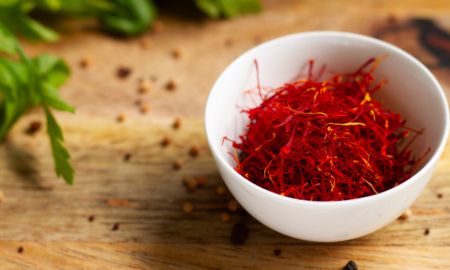
The Truth Behind Detox Diets – Health Boost or Risky Trend?

It’s hard to scroll through your feed without seeing someone sipping green juice with promises of instant energy, glowing skin, and rapid weight loss. Detox diets are everywhere—from flashy ads to influencer stories. The idea? Clean out your system, drop a few pounds, and start fresh. But is there any real science behind the hype, or is it just another wellness fad dressed up in a smoothie bottle?
Let’s unpack what detox diets really offer—and what they don’t.
A Detox Diet
Detox diets usually involve short periods of eating very few solid foods or switching entirely to liquids—think juices, herbal teas, or smoothies. Some plans cut out specific food groups like dairy, gluten, processed foods, or even fruits high in sugar. The goal is to eliminate “toxins” from the body and give the digestive system a break.
But here’s the catch: your body already knows how to detox. And it’s doing it every single day.
The Promises Detox Diets Make

Freepik | The appeal of detoxes lies in claims of quick, visible weight loss.
They’re marketed like quick fixes—simple, fast, and with visible results. The most common claims made about detoxes include:
1. Shedding pounds in just a few days
2. Feeling more energized and mentally clear
3. Improving digestion and reducing bloating
4. Achieving clearer skin
5. Eliminating toxins from the body
All that sounds appealing, especially when feeling sluggish or after a period of overindulgence. And yes, some people do feel lighter or see the number on the scale dip, but that doesn’t mean the detox is doing what they think it is.
How the Body Actually Detoxes
Unlike trendy juice cleanses, your body has a built-in detox system that never clocks out. The liver, kidneys, lungs, skin, and intestines all work in sync to remove waste and filter out what you don’t need. This happens whether you’re drinking celery juice or having a balanced breakfast.
Here’s the science: most of the weight lost on a detox diet comes from water and stored glycogen, not fat. And the moment normal eating resumes, the weight often returns. Also, many detox drinks lack the fiber, protein, and nutrients your body depends on to actually fuel its natural detox process.
Real Risks of Restrictive Detoxes
While they might seem harmless, especially when marketed as “natural,” many detox diets can lead to:
1. Nutritional Gaps – Cutting out major food groups can leave you short on essential nutrients such as vitamins, minerals, fiber, and even healthy fats.
2. Low Energy and Mood Swings – Too few calories can drain your energy, make you irritable, and reduce mental focus.
3. Digestive Disruption – Despite promising improved gut health, some detox plans lack the fiber needed for healthy digestion or cause sudden bowel changes due to high liquid intake.
4. Slowed Metabolism – Severely restricted diets may trigger your body to conserve energy, slowing metabolic processes over time.
5. Rebound Weight Gain – Since they’re unsustainable, most people bounce back to old eating habits and sometimes gain even more weight than they lost.
6. Unhealthy Food Beliefs – When detox plans label certain foods as “bad” or “toxic,” it can lead to guilt about eating and a distorted view of nutrition.
Supporting Your Body’s Natural Detox Process

Freepik | Regular exercise improves blood flow, aids digestion, and promotes toxin elimination via sweat.
Instead of relying on extreme measures, the most effective way to support detoxification is through simple, long-term lifestyle changes. Here’s what helps the body function at its best:
1. Stay hydrated
Clean, filtered water is one of the most effective tools for flushing out waste. Aim to drink consistently throughout the day.
2. Eat fiber-rich foods
Whole grains, fruits, vegetables, legumes, and seeds help move waste through the digestive tract and out of the body.
3. Get quality sleep
Rest is when the body regenerates and repairs. It plays a key role in everything from hormonal balance to cellular cleanup.
4. Incorporate daily movement
Physical activity improves circulation, supports digestion, and promotes sweating—another way the body naturally eliminates toxins.
5. Reduce exposure to toxins
Limit alcohol, processed foods, added sugars, and environmental pollutants. The fewer toxins consumed, the less burden placed on detox organs.
6. Manage stress
Chronic stress affects nearly every system in the body, including those that filter and eliminate waste. Mindfulness practices, deep breathing, and regular downtime all help.
Choosing Health Over Hype
Quick-fix detox plans may promise a fresh start, but they rarely deliver the lasting results they claim. Supporting your body’s natural detox system isn’t about cutting out everything you love—it’s about nourishing it consistently with whole foods, hydration, movement, and rest.
Instead of chasing short-term cleanses, aim for long-term balance. That’s where the real transformation happens, without the gimmicks or crash diets.
Always speak with a qualified healthcare provider or dietitian before making significant changes to your diet. Your health deserves more than just a trend—it deserves sustainable care that works with your body, not against it.
More inHealthy Trends
-
`
Are Popular Diet Trends Actually Good for Your Heart?
Diet trends grab headlines every year, promising everything from glowing skin to dramatic weight loss. But when it comes to the...
July 30, 2025 -
`
Why Are Men Taller Than Women? New Genetic Study Finds Clue
For centuries, the average height difference between men and women has been noticeable—men generally stand about five inches taller. While environment...
July 23, 2025 -
`
How Upcycled Beauty Ingredients Are Reshaping the Industry’s Future
The beauty industry is going through a big shift — and it’s not just about trends. As waste problems grow and...
July 17, 2025 -
`
A Look Inside Faith Kipyegon’s Groundbreaking Mile Run in Paris
Last week in Paris, Faith Kipyegon returned to a place she knows well: Stade Sébastien Charléty. But this time, she wasn’t...
July 9, 2025 -
`
Dairy Is Making a Major Comeback — And Health Shoppers Are Loving It
Just a few years ago, dairy sat quietly in the back seat while plant-based alternatives took the spotlight. Now, it’s stepping...
July 4, 2025 -
`
Does Aging Cause Dental Problems?
Aging doesn’t automatically mean losing teeth or developing gum disease. In fact, older adults today are holding onto more of their...
June 25, 2025 -
`
How Upcycled Ingredients Are Shaping the Future of Cosmetics
What used to end up in bins or compost heaps is now finding a new life inside skincare bottles and beauty...
June 18, 2025 -
`
Rock Legend Rod Stewart Trains to Break Sprint Record at 80
Age isn’t slowing Rod Stewart down. Known worldwide for his legendary voice, stadium-filling tours, and timeless hits like “Maggie May”, the...
June 11, 2025 -
`
Is Dr. Oz Fit to Lead Medicare?
The announcement of Dr. Mehmet Oz as President-elect Donald Trump’s pick to lead the Centers for Medicare and Medicaid Services (CMS)...
May 29, 2025














You must be logged in to post a comment Login